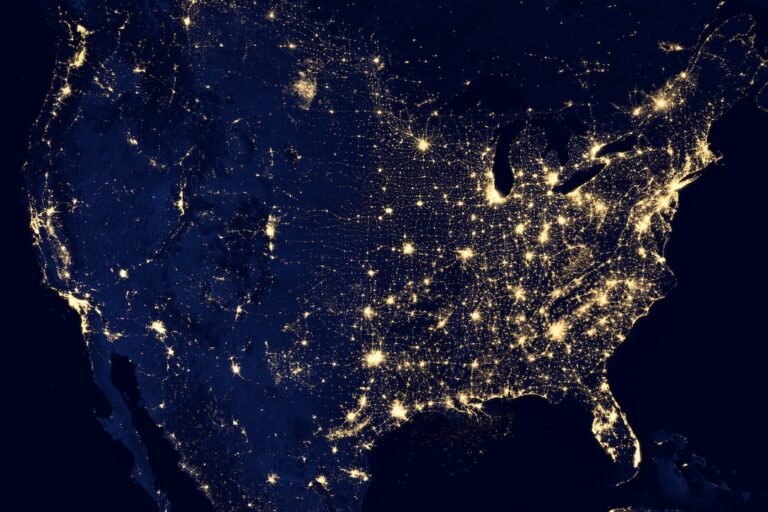Introduction
In today’s digital age, children are more connected than ever before. They use the internet for learning, communication, and entertainment. While the internet offers many benefits, it also poses risks to children’s online privacy. That’s where parental control routers and privacy laws come into play. In this article, we will explore how parental control routers can help protect children’s online privacy and discuss the role of privacy laws in safeguarding their digital well-being.
The Importance of Protecting Children’s Online Privacy
Children are increasingly exposed to online threats such as cyberbullying, inappropriate content, and online predators. It is crucial for parents to take steps to protect their children’s online privacy. This involves monitoring their internet activity, filtering content, and setting appropriate boundaries. One effective tool to achieve this is a parental control router.
What is a Parental Control Router?
A parental control router is a specialized device that allows parents to manage and control their children’s internet access. It offers a range of features such as content filtering, time restrictions, and activity monitoring. By using a parental control router, parents can ensure that their children have a safe and age-appropriate online experience.
How Does a Parental Control Router Work?
Parental control routers work by intercepting and filtering internet traffic before it reaches the devices connected to the network. They use advanced algorithms and databases to categorize websites and block access to inappropriate content. These routers also provide options for setting time limits for internet usage and monitoring online activity.
The Benefits of Using a Parental Control Router
Using a parental control router offers various benefits for both parents and children:
Content filtering: Parents can block access to websites that contain explicit content, violence, or other inappropriate material. This helps create a safe online environment for children.
Time restrictions: Parents can set specific time limits for internet usage, ensuring that children do not spend excessive time online. This promotes a healthy balance between online and offline activities.
Activity monitoring: Parental control routers allow parents to track their children’s online activity. They can view websites visited, search terms used, and even monitor social media interactions. This helps identify any potential risks or signs of cyberbullying.
Safe search: Parental control routers often include a safe search feature that filters search results to ensure that children are not exposed to harmful or explicit content.
Device-specific controls: Most parental control routers allow parents to customize settings for each individual device connected to the network. This ensures that controls are tailored to each child’s needs, age, and maturity level.
The Role of Privacy Laws in Protecting Children
In addition to using parental control routers, privacy laws play a vital role in protecting children’s online privacy. These laws aim to regulate how personal information is collected, used, and shared in online spaces. Let’s take a closer look at some of the key privacy laws that safeguard children’s digital well-being.
Children’s Online Privacy Protection Act (COPPA)
The Children’s Online Privacy Protection Act (COPPA) is a United States federal law designed to protect the privacy of children under the age of 13. COPPA requires website operators and online services to obtain parental consent before collecting personal information from children, such as their name, address, or email. The law also enforces strict guidelines on data security and provides parents with the right to review, delete, and control the collection of their child’s personal information.
General Data Protection Regulation (GDPR)
The General Data Protection Regulation (GDPR) is a privacy law that applies to all European Union (EU) member states. It aims to protect the privacy and data of EU residents, including children. Under the GDPR, organizations must obtain explicit consent from parents or guardians before processing the personal data of children under the age of 16 (though member states can lower this age to 13). The law also grants children the right to access their personal data and request its deletion.
Family Educational Rights and Privacy Act (FERPA)
The Family Educational Rights and Privacy Act (FERPA) is a U.S. federal law that protects the privacy of student education records. FERPA governs how schools and educational institutions collect, store, and disclose student information. It provides parents with the right to access and control their child’s educational records, as well as the right to opt-out of information sharing.
Other Privacy Laws and Initiatives
Various other privacy laws and initiatives exist worldwide that aim to protect children’s online privacy. For example, in the United Kingdom, the Data Protection Act and the Information Commissioner’s Office provide guidelines on processing and safeguarding personal data, including that of children. Similarly, Australia has the Privacy Act and the Office of the Australian Information Commissioner, which oversee privacy regulations.
Conclusion
Ensuring the online privacy and safety of children is of paramount importance. Parental control routers offer a practical and efficient solution to protect children from online threats. By using these routers along with privacy laws, parents can have peace of mind knowing that their children are safe when exploring the digital world. Remember, it is crucial to stay informed about the latest advances in technology, privacy laws, and best practices to effectively protect the online privacy and well-being of children.
Frequently Asked Questions
To further enhance your understanding, here are some frequently asked questions about parental control routers and privacy laws:
| Question | Answer |
|---|---|
| How do I set up a parental control router for my home network? | Setting up a parental control router is relatively easy. Check out our guide on home network setup for step-by-step instructions. |
| What are some common troubleshooting tips for routers? | If you’re facing issues with your router, our router troubleshooting guide provides useful tips and solutions. |
| Are there any privacy laws specifically for online activities? | Yes, laws like COPPA and GDPR focus on protecting children’s online privacy. Compliance with these laws is essential for organizations handling children’s personal information. |
| How do parental control routers enforce privacy laws? | Parental control routers help enforce privacy laws by providing features like content filtering, monitoring online activity, and ensuring compliance with data protection regulations. |
| Can parental control routers integrate with smart home devices? | Yes, many parental control routers can integrate with smart home devices, allowing parents to manage internet access and set controls through a single interface. |
Further Reading
For more information on parental control routers, privacy laws, and related topics, here are some external resources worth exploring:
| Title | Website |
|---|---|
| Home Network Setup: A Comprehensive Guide | cnet.com/how-to/home-network-setup |
| Wireless Router Security: Protecting Your Network | pcmag.com/how-to/wireless-router-security |
| Gaming Router Buying Guide: High-Performance for Competitive Play | tomshardware.com/gaming-router-buying-guide |




